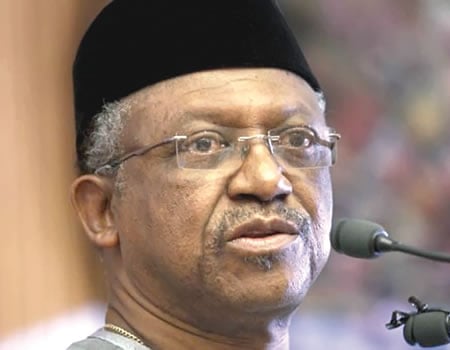Federal Government has said the implementation of the New Strategic Plan to kick out malaria in Nigeria will cost N1.89 trillion.
The breakdown indicates that about 63.1% of the total amount will be used to support Chemoprevention, Diagnosis and treatment while 35.9% will be used for vector management.
In a speech to commemorate 2021 World Malaria Day, Minister of Health, Dr Osagie Ehanire also disclosed that about N352 billion is required for the year 2021 programme implementation as he solicited support from the private sector, corporate organisations and patriotic individuals.
Ehanire further said the years of intensive and dedicated program implementation in Nigeria, indicators have shown a positive trend.
“Use of insecticide-treated nets among under-5 children increased from 43.4% (2015) to 52% (2018), while pregnant women increased use from 49% (2015) to 58% (2018).
“Fever testing of under-5 children increased from 5% in 2010 to 11% in 2013, 13% in 2015 and 14% in 2018; but is still too low.
“These measures resulted in a reduction of malaria prevalence from 42% in 2010 to 27% in 2015 and 23% in 2018.
“We expect that when results of the 2021 Malaria Indicator Survey to be conducted later this year are out, a further downward trend will be seen,” he said.
Ehanire while giving the rundown of the past activities to stem the tide of malaria parasite in the past years said under the Severe Malaria Retrospective Study, 3,503 cases of severe malaria were treated in 18 secondary health facilities.
“A follow up to the Severe Malaria Clinical Audit done in 2019 revealed an improvement in most of the systems and case-management indicators.
“Quality of Care and standards in Malaria Case Management were rolled out in some states, providing the platform for states’ teams to carry out assessments at health facilities, based on 3 pillars of Quality of care including structure, process and outcome.
“As part of efforts to achieve universal health coverage and household ownership of Insecticide Treated Nets (ITNs) in Nigeria, 17,267,410 ITNs were distributed in six states, using single-phase door-to-door and double phase door-to-door strategies, due to the COVID-19 pandemic.
Also, the New Net Project (NNP) study commenced in four Local Government Areas in two states, to help accelerate the scale-up of the next generation ITNs, thereby mitigating the increasing resistance to pyrethroid-only nets.
“The programme has developed a five-year new generation malaria strategic plan (NMSP 2021-2025) to sustain gains achieved in the national malaria control effort and chart a pathway towards achieving a malaria-free Nigeria,” Ehanire added.
YOU SHOULD NOT MISS THESE HEADLINES FROM NIGERIAN TRIBUNE
We Have Not Had Water Supply In Months ― Abeokuta Residents
In spite of the huge investment in the water sector by the government and international organisations, water scarcity has grown to become a perennial nightmare for residents of Abeokuta, the Ogun State capital. This report x-rays the lives and experiences of residents in getting clean, potable and affordable water amidst the surge of COVID-19 cases in the state.






